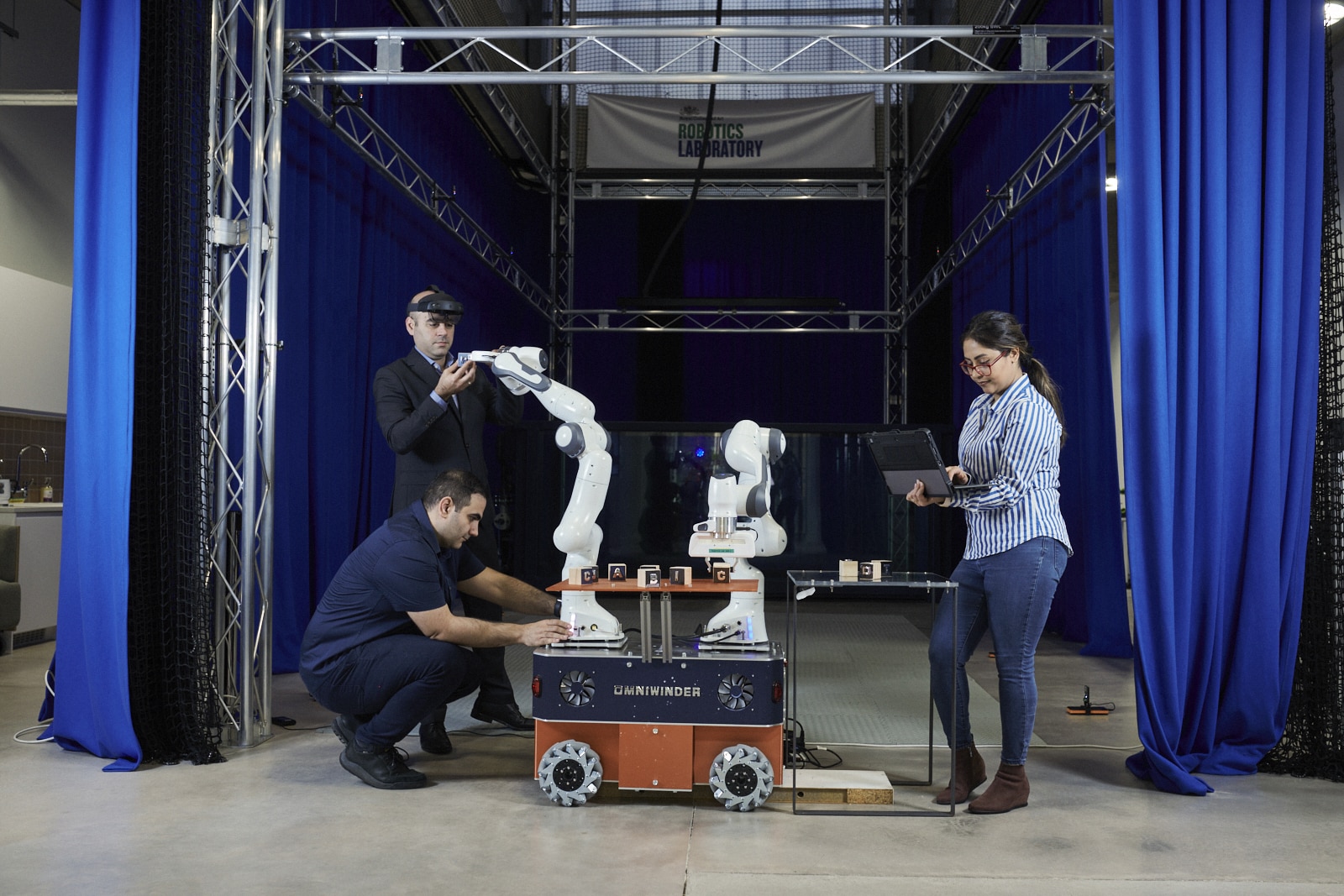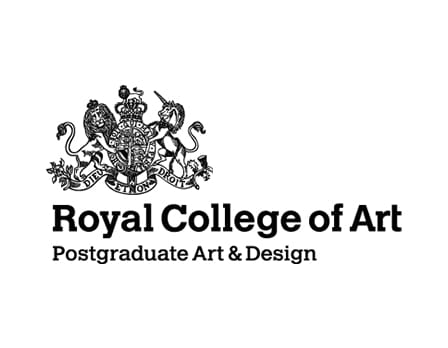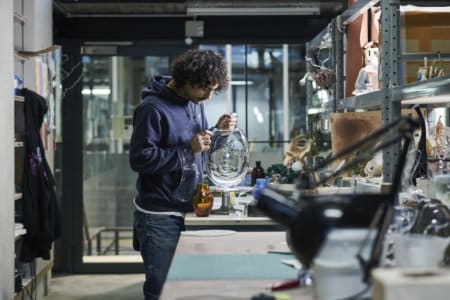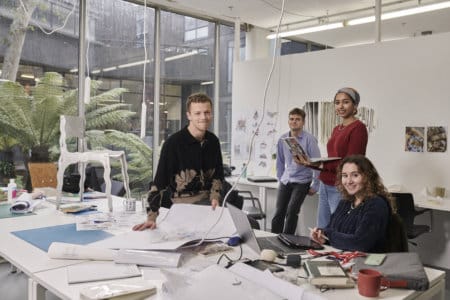Art and design have always held a transformative power in society — that of inspiring creativity, celebrating human culture, solving global challenges and shaping society as we know it. It is naturally broad, bringing together perspectives and ideas from all walks of life. An art and design education embodies the best of this — empowering individuals to create change and a future that is vibrant, inclusive and interconnected.
The most innovative of these educations can be found at the Royal College of Art (RCA). With over 185 years of experience, RCA is the only art and design university solely focused on postgraduate-level programmes. It has retained the top spot for art and design and has championed itself as the world’s best institution for History of Art. This continues to attract the world’s most talented students to its London campus, creating a dynamic community of ambitious visionaries, from a wide range of backgrounds.
Students can study programmes in art, design, communications, architecture and the humanities. As well as MA and PhD qualifications, the RCA has recently launched a range of exciting new degrees, including the Arts & Humanities MFA, Communications MFA, Design Futures MDes, Design Practice MArch, Creative Education MEd and Master of Research MRes RCA. Each has a distinct interdisciplinary focus, bringing ideas and concepts from various subjects to inform one’s learning — and expanding their proficiencies as a result.
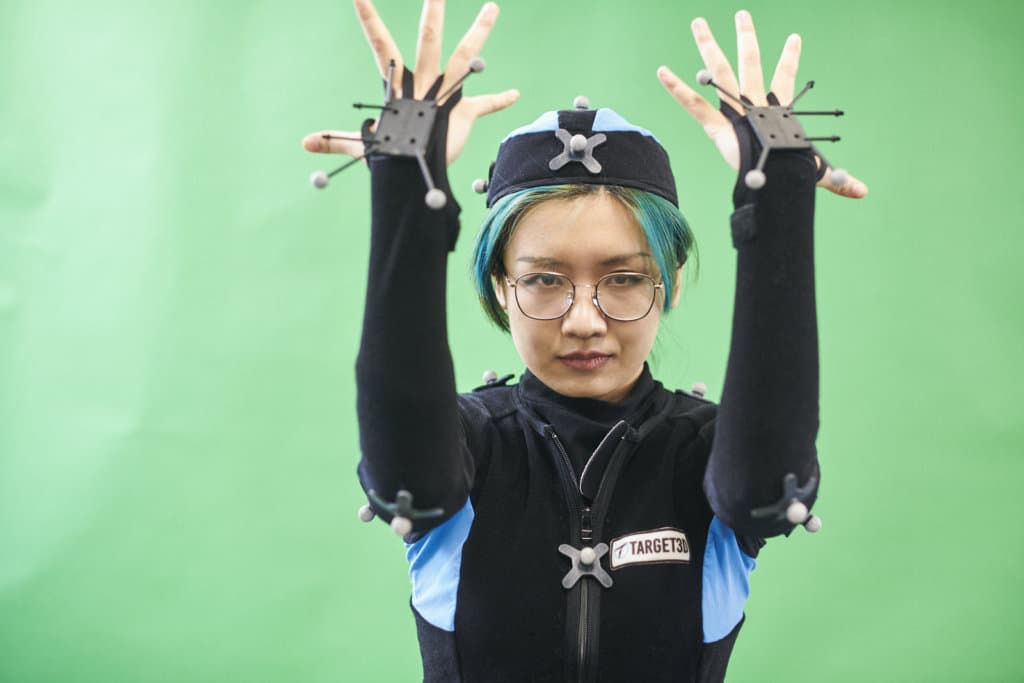
The Royal College of Art is offering more than just your average arts education. Source: The Royal College of Art
A unique interdisciplinary approach
Creativity is best expressed through exploration, and the RCA — home to the world’s largest concentration of postgraduate artists and designers — provides its students with plenty of opportunities for this. In fact, it is the first art and design university in the world to implement a STEAM (Science, Technology, Engineering, Art and Design and Mathematics) curriculum.
Disciplines are not just focused on the arts — they expand into computer and materials science, robotics, advanced manufacturing, complex visualisation, and data science and intelligent mobility. Together, they empower students to tackle the most pressing global challenges with grit and expertise. Indeed, around a quarter of the RCA’s students don’t come from a traditional art and design background.
This is further explored in the RCA’s academic approach. Here, students don’t just absorb information in the classroom — they venture out into the world and learn through hands-on work. The RCA’s collection of expert faculty ensures current real-world practices are integrated into teaching, ensuring programmes stay industry-relevant. A research-driven approach further enhances this, guaranteeing a learning experience that caters to what employers are looking for today.
This sits alongside an extensive commitment to the “traditional” crafts of arts and design. From architecture to fashion, every student is given the flexibility to find their own personal style and vision. A faculty that are all active researchers helps them refine their ideas along the way, providing advice and insights into honing their skill set.

Home to the world’s largest concentration of postgraduate artists and designers, the RCA is where students can find inspiration from a large talent base. Source: Royal College of Art
Collaborative learning at the RCA
A large part of learning at the RCA is the sharing and exchange of thoughts and ideas. A diverse student body is central to this, bringing together unique skills, knowledge and experience in solving society’s greatest problems. Today’s RCA students and staff often work together in a cross-disciplinary environment, addressing global challenges including ageing populations, sustainability, rapid urbanisation and artificial intelligence in their projects.
AcrossRCA is a prime example. “AcrossRCA supports students in responding to the complexity of an uncertain, changing world,” explains Tom Sowden, Assistant Dean of Education.
Four interdisciplinary themes make up the unit, each selected to expand beyond architecture, art, communication and design spheres. Students are exposed to new information through presentations from internationally-acclaimed speakers, expert theme panellists and guest lecturers. Each new session demands them to stretch their worldviews into other territories such as ethics, science, engineering, politics, technology or medicine — and understand how they interact with their chosen disciplines.
Teamwork is a critical tenet of learning at the RCA. “Students work together to develop innovative and disruptive thinking, critically reflecting on their responsibilities as creative practitioners,” adds Sowden. “This engagement with interdisciplinary and collaborative perspectives and practices complements the students’ disciplinary studies, broadens their peer network, and enables them to thrive beyond graduation.”
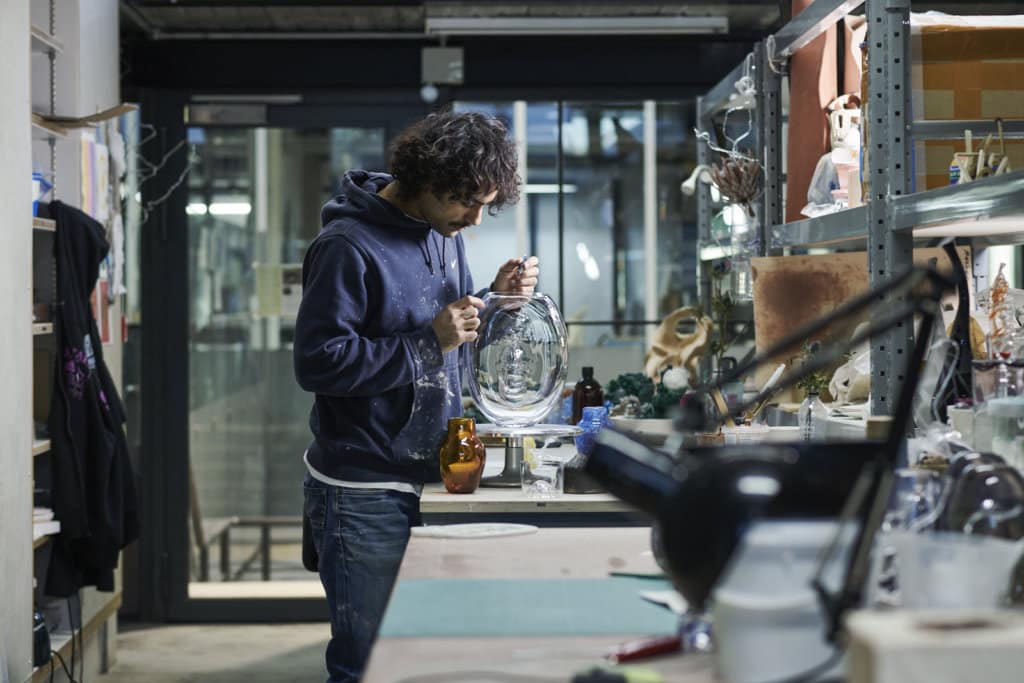
Gain industry-specific skills that can be applied to a variety of different contexts. Source: The Royal College of Art
An institution that elevates talent
Every aspect of learning at the RCA is structured around giving students the tools and access to succeed in their chosen disciplines. Talent is identified above all else — regardless of one’s own background or financial circumstances. In this, the RCA provides a wealth of scholarships and awards to aid every student in their academic journey.
Once they arrive on campus, students have every resource possible to support their journey here. All three of the RCA’s campuses are equipped with state-of-the-art bespoke studios, workshops and technical spaces for every student’s benefit. This includes a new design and innovation campus in Battersea, housing four Research Centres, an InnovationRCA start-up incubator, the Snap Visualisation Lab and a Robotics Lab, among others.
Then there’s the variety of on-hand skilled technicians employed by the university who are specialised in a range of different fields. From rapid prototyping to film and sound engineering, these technicians bring their own expertise to the stage, creating an environment where everyone can learn from and collaborate with each other.
The result? An institution that champions comprehensive research, innovative thought and creative collaboration. By the time students graduate, they’ll be armed with the knowledge and creative thinking needed to address pressing issues faced by the world today — and come up with solutions for the complexities of tomorrow.
Follow the Royal College of Art on Facebook, Twitter, LinkedIn, Instagram and YouTube.

